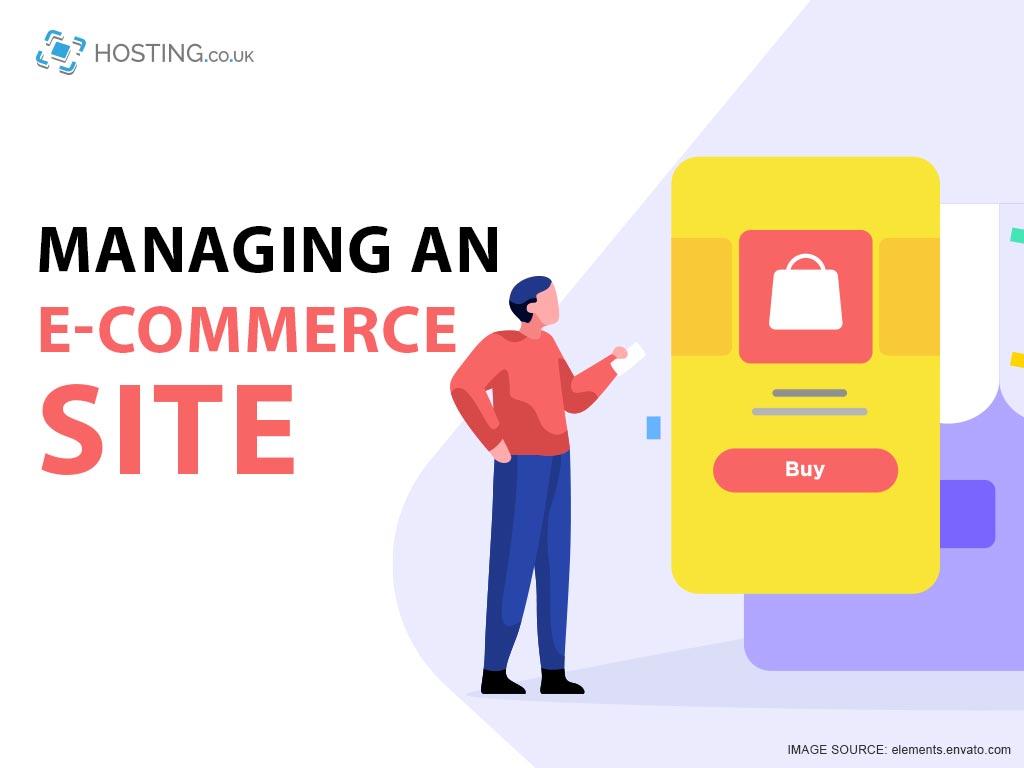In principle the idea of managing an eCommerce website is fairly straightforward. There are numerous packages out there, different hosting accounts and many ways to market your business. It is only when you sit down and consider the options that it becomes a little more complicated – where do you start?
What is the best content package, the best eCommerce platform and the best type of hosting account for your business? How do you market your business and more importantly how do you secure sales? We will now take a look at the various stages you need to consider when setting up and managing an e-commerce business.
Table of Contents
Focus on your products
It may seem common sense to suggest that when managing an eCommerce website you need to focus on your products. However, the fact is that many people will take a scattergun approach to products on their website which gives them little if no focus. The best way to start an e-commerce website is to take a focused approach and become a specialist in a particular area. This may be selling office furniture, software packages, chairs or something totally different.
If you take a scattergun approach to setting up your own eCommerce website you might end of spreading yourself too thinly. For example, if you have dozens of products as opposed to focusing on a small number of products, you may be left with money tied up in stock for many months before you sell it. Taking a focused approach to your product range will give you an identity and when your customer base grows you can then begin to sell complimentary products/services. So, how would you create an identity for your e-commerce business?
Finding a domain for your eCommerce website
It may sound easy to find a domain name for your e-commerce store but let’s not forget this should be your identity forever and a day. Therefore, it is essential that you take time out to think of a relevant domain name which fits in with your branding and says exactly what you do. It is all good and well having a “fancy” domain name as a brand but the time it takes people to relate your brand to a specific product is time (and money) wasted.
There are many different types of e-commerce specific domain name extensions which are used today including:-
-
.site
-
.shop
-
.store
-
.biz
It is safe to say that these do exactly what they say on the tin. For example, let’s suppose you sell garden furniture online. Would the following domain names catch your eye:-
- www.gardenfurniture.site
- www.gardenfurniture.shop
- www.gardenfurniture.store
- www.gardenfurniture.biz
This is just an example but you can see what we mean. The actual domain name shows exactly what you sell; the extension has a very strong connection to e-commerce. So, as people are scrolling through search engine results, if they come across your website they will know exactly what you sell before clicking on it – no mystery.
Web Hosting accounts
If you have looked into hosting accounts you will be aware there are various types such as shared hosting, VPS hosting and dedicated server hosting. Here at hosting.co.uk we offer the full range of hosting accounts all of which can be tailored towards your eCommerce website needs. The vast majority of small businesses will start off with a shared hosting account which is relatively cheap because numerous accounts are serviced on one server – sharing resources.
The resource requirements of e-commerce sites are significantly higher than traditional blogs or information websites but in the early days a shared hosting account will most likely suffice. As your business continues to grow you may decide to move to VPS hosting (virtual private server hosting) and then if your business really takes off, dedicated server hosting might be an option. In order to smooth the process of transferring an existing eCommerce website there is the option of free migration which normally takes less than 24 hours.
1-Click Install e-commerce scripts

What you will notice with hosting.co.uk accounts is that we offer a range of preloaded e-commerce/content management platforms including the likes of:-
- WordPress
- Joomla!
- Drupal
- Magento
- Cubecart
- OS Commerce
- Zen Cart
- AgoraCart
These are all recognised and very popular content management/e-commerce systems which will allow you to promote your website and also collect payments from customers. There is an array of other e-commerce scripts for you to consider but these ones are extremely easy to use and there is significant support available.
Marketing your e-commerce business

There are many ways in which you can market your e-commerce business, some of which will give you a kickstart in the short term while others will lay long-term foundations for organic growth. These include the likes of:-
Google Ads
As the name suggests, these are highly customisable adverts which are published by Google and can be set up in just a matter of minutes. This is a pay per click (PPC) advertising medium and you have full control over:-
- Where your adverts appear (Google partner websites/search engine)
- Which search terms will prompt your adverts to appear
- Maximum cost per click
- Daily budget
As we suggested when looking at products to sell in your e-commerce website, the most successful Google Ads are those which are focused on a specific type of product, even a specific brand, and demographic. This ensures that you are not wasting your time publishing your advert to individuals who may only have a relatively weak interesting in what you have to offer. There are numerous marketing companies out there who will help you with Google Ads (and other pay per click strategies) and initially it may take some time testing to see what works best for you.
Email marketing
Email marketing may be one of the oldest e-commerce strategies but it is still extremely useful if done properly. Due to excessive spam in years gone by, there are now strict rules and regulations regarding opt-in email lists and the need to abide by GDPR laws brought in by the European Union. These new laws ensure that only those who opt-in will receive your email newsletters and there are also various aspects to consider with regards to client data security. However, email marketing is still one of the most successful sales strategies available today – if thought out and organised.
The best way to encourage visitors to sign up to your email marketing campaign is to add a form to your website. This allows visitors to sign-up and opt-in to receive your future newsletters and often includes an attention grabbing introductory offer. You will be surprised how quickly you can build up an email marketing list and how very often those on the list will tell their friends about your “exceptional” offers.
Social media

When you bring together social media and e-commerce specific domains such as:-
-
.site
-
.shop
-
.store
-
.biz
this can be a very powerful marketing tool. Social media is yet another one of those marketing strategies that far too many people discount as “run-of-the-mill” when in fact you have the potential to reach thousands if not millions of potential customers. As with the likes of Google Ads, there is a need to remain focused with your social media campaigns as you look to build up your brand and promote your company name.
Historically social media consisted of just Facebook, Instagram and Twitter but now there are literally hundreds of other well-known social media channels you can use. There will come a point when it is counter-productive with regards to time and money. However, there is nothing wrong carrying out various tests to see which social media channels work best for your products.
Summary
The initial idea and branding of your e-commerce business are obviously very important and form the foundations of your long-term future. It is also important to take time to look at e-commerce-specific domains such as .site, .shop, .store and .biz and see which ones best fit your profile. There is a balance between making your brand unique and telling people exactly what you do via your domain name.
When looking at hosting, whether this is shared hosting, VPS or dedicated server hosting, it may be an idea to look at managed accounts. This type of account is managed by your host provider and ensures that all issues are addressed as soon as possible and you have maximum website uptime. It also allows you to focus on your key strengths, promoting your e-commerce business and increasing sales. Many people fall into the trap of “self-managing” their hosting accounts when in reality their time is perhaps best spent utilising their e-commerce skills to grow their business.
